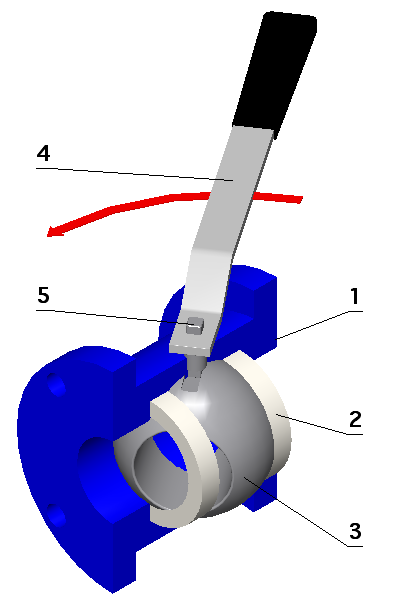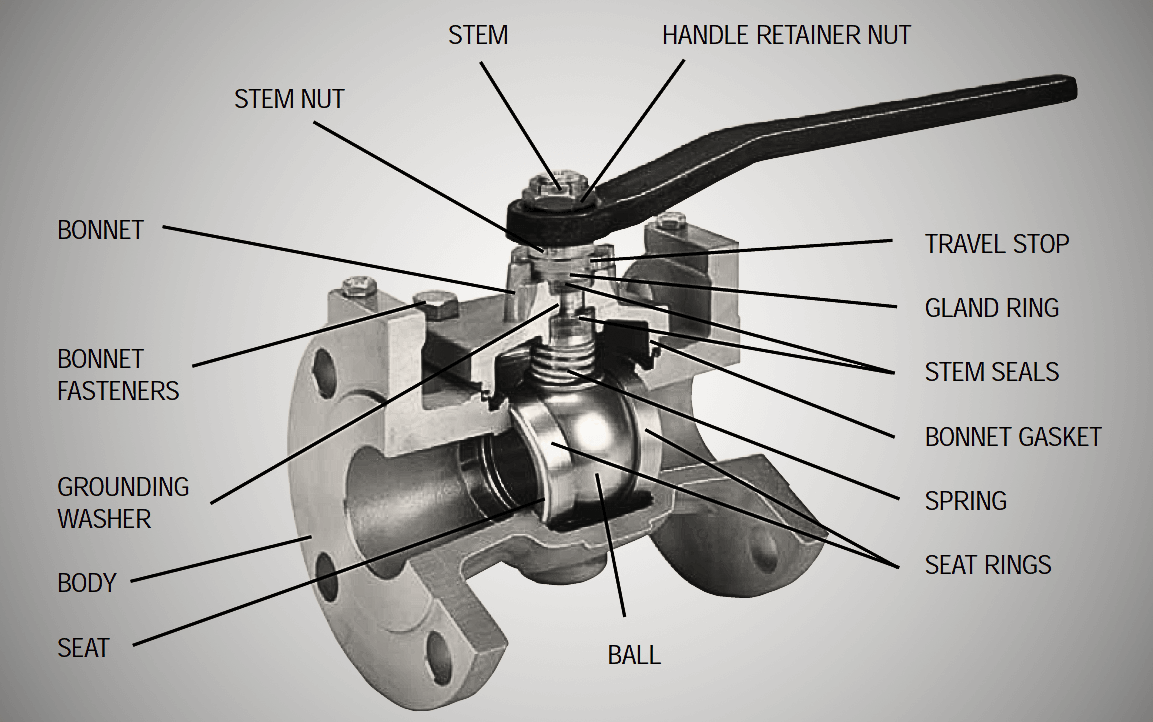What is a Ball Valve?
A ball valve is a type of valve used to regulate and control the flow of liquids or gases in a piping system. It features a spherical ball inside with a hole through its center. When the valve is open, the hole aligns with the pipe, allowing fluid or gas to pass through. When the valve is closed, the ball rotates to block the flow.

Components of a Ball Valve
A typical ball valve consists of the following main parts:
- Body: The outer casing that holds all the parts of the valve together. The body can be made from materials like stainless steel, brass, plastic, and various other materials.
- Ball: The spherical component inside the valve with a hole through it. The ball is usually made of stainless steel or other durable and corrosion-resistant materials.
- Handle (or lever): Used to turn the ball valve from the open to the closed position and vice versa.
- Seals and Gaskets: Ensure that when the valve is closed, no fluid or gas leaks through.

Working Principle
The working principle of a ball valve is straightforward:
- When the valve is open: The handle is turned so that the hole in the ball aligns with the pipeline, allowing fluid or gas to flow through.
- When the valve is closed: The handle is turned to rotate the ball, so the hole is no longer aligned with the pipeline, blocking the flow.
Advantages of Ball Valves
Ball valves offer several advantages, including:
- Quick Operation: The valve can be opened or closed with a 90-degree turn of the handle.
- High Sealing Performance: High-quality seals and gaskets prevent leaks effectively.
- Durability: Ball valves have a long service life and require minimal maintenance.
- Versatility: They can be used with a wide variety of liquids and gases.
Applications of Ball Valves
Ball valves are widely used in various industries and applications, such as:
- Water Supply Systems: To control the flow of water in piping systems.
- Oil and Gas Industry: To regulate the flow of oil and natural gas.
- Chemical Industry: To handle and transport different chemicals.
- Food and Beverage Industry: To control the flow of liquid products during production processes.
Conclusion
Ball valves are an essential and common component in many piping systems due to their efficient flow control, high durability, and versatility. With their simple yet effective design, ball valves play a crucial role in ensuring the smooth operation of many industrial and domestic processes.
